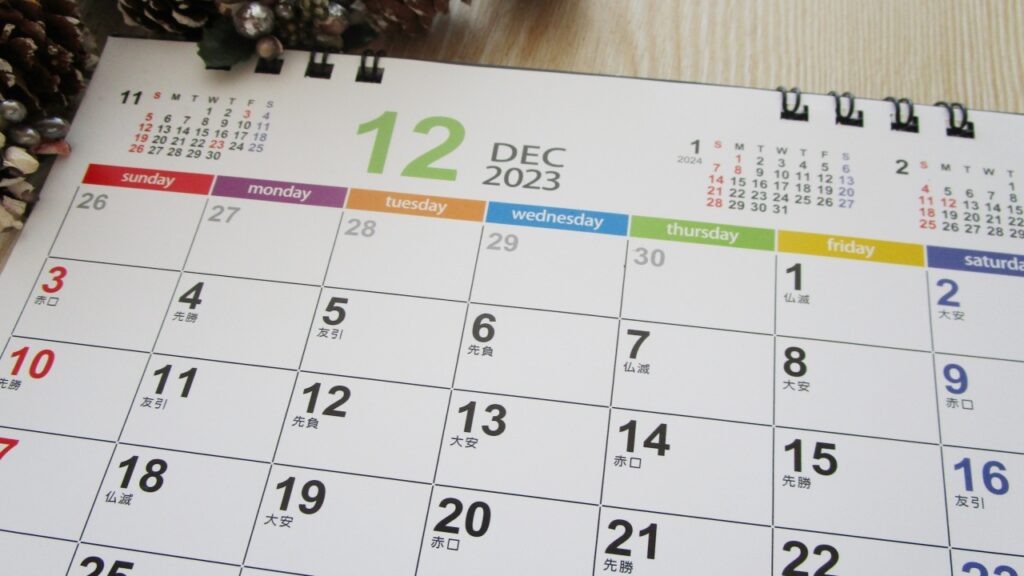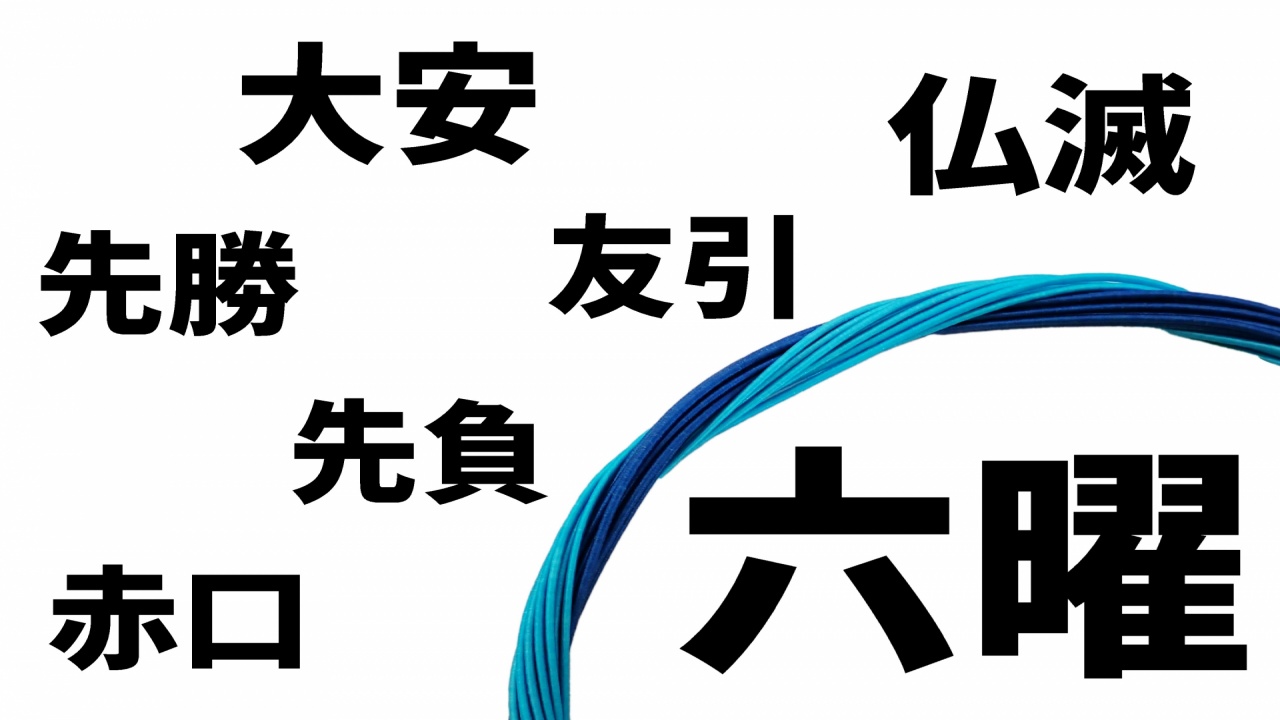新月となる日の傾向を言語化したもの。次の新月まで6つの傾向を繰り返す。起源不詳。
*中国・宋の時代の書物にある6つのうち、現代と同じなのは「大安」「赤口」の2つ
江戸時代後期に、ほぼ日本式の六曜に統一された。
正式な暦とは認められず、民間で発行されるものに占いの一つとして記載される程度であった。明治の改暦後、復刻が認めれらた唯一の暦注*。
*暦注:暦に記載されている吉凶禍福に関する事項
意味の解釈はさまざま。どれが正しいという基準はない。

Verbalize the tendency of the new moon day.Repeat the six trends until the next new moon.Origin unknown.
*Two of the six from the book Song Dynasty in China, are the same today: “Taian(大安)” and “Syaku(赤口).”
In the late Edo period, it was unified into Rokuyo, which is almost Japanese style.
It was not recognized as an official calendar, and was only listed as a form of fortune-telling in privately published calendars.This is the only calendar annotation that has been approved for reprint after the Meiji calendar reform.
*Calendar note: Matters related to good fortune and misfortune listed in the calendar
There are various interpretations of the meaning.There is no standard as to which is correct.
参考資料など
こよみナビゲーター養成講座(2023年開催)
「旧暦読本」岡田芳朗 著

